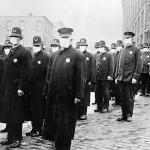A news report from Virginia says that two people are dead and 18 have been hospitalized following an outbreak of an unknown respiratory infection at a ret
epidemiology
Every year, roughly 2.8 million Americans shuffle off this mortal coil. In 2017, the CDC recorded exactly 2,813,503 deaths for an average of 7,708 deaths per day.
One of our readers [1] wrote to us about a recent article in Lancet regarding the role of alcohol in cardiovascular disease. That prompted us to take a look and here is what we found.
We all need to participate in physical activity to improve our general health and functioning.
One day, coffee causes cancer; the next, it cures cancer. One day, wine is good for you; the next it kills you. Given its self-contradictory wishy-washiness, can nutrition science be trusted?
Much is still unknown about the Ebola virus. The microbe, which re-emerges from time to time usually in Africa, causes a hemorrhagic fever with a fatality rate as high as 90%.
Let's pretend that researchers are investigating acts of violence between players during hockey games. And let's further pretend that they are interested in determining if violent behavior has a racial component.
The Spanish Flu of 1918, which caused a pandemic, is estimated to have killed about 2% of the world population, a death toll greater than the military deaths of World
The incidence of prostate cancer tripled between 1975 and the early 90’s. What changed?
It turns out you can explain the spread of rioting as well as fake news by understanding the spread of a communicable disease, such as the flu. Both actions and ideas spread like a virus; you need both an infectious idea and a receptive audience.












